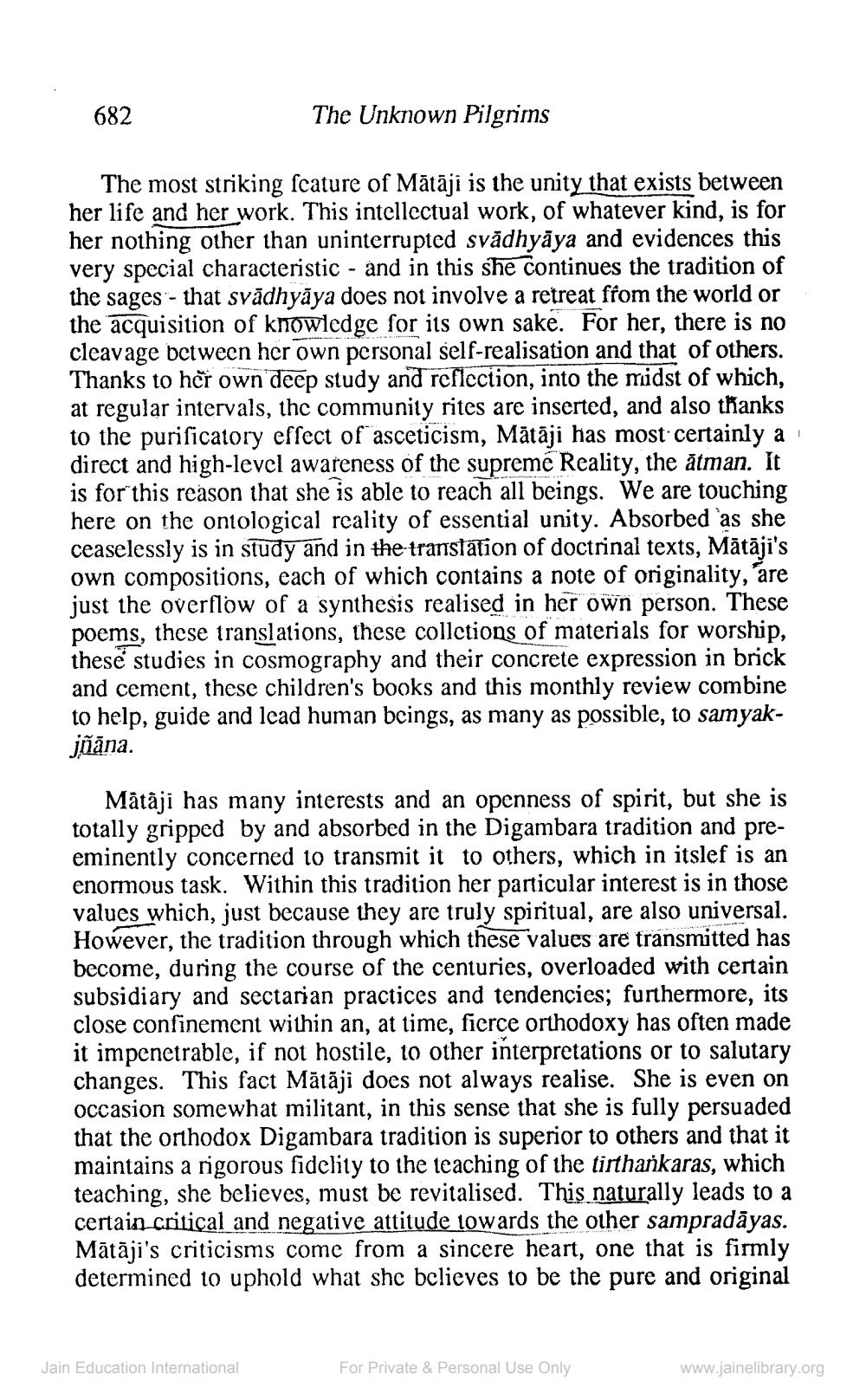________________
682
The Unknown Pilgrims
The most striking feature of Mātāji is the unity that exists between her life and her work. This intellectual work, of whatever kind, is for her nothing other than uninterrupted svādhyāya and evidences this very special characteristic - and in this she continues the tradition of the sages - that svādhyāya does not involve a retreat from the world or the acquisition of knowledge for its own sake. For her, there is no cleavage between her own personal self-realisation and that of others. Thanks to her own deep study and reflection, into the midst of which, at regular intervals, the community rites are inserted, and also thanks to the purificatory effect of asceticism, Mātāji has most certainly a direct and high-level awareness of the supreme Reality, the ātman. It is forthis reason that she is able to reach all beings. We are touching here on the ontological reality of essential unity. Absorbed as she ceaselessly is in study and in the translation of doctrinal texts, Mātāji's own compositions, each of which contains a note of originality, are just the overflow of a synthesis realised in her own person. These poems, these translations, these collctions of materials for worship, these studies in cosmography and their concrete expression in brick and cement, these children's books and this monthly review combine to help, guide and lead human beings, as many as possible, to samyakjñāna.
Mātāji has many interests and an openness of spirit, but she is totally gripped by and absorbed in the Digambara tradition and preeminently concerned to transmit it to others, which in itslef is an enormous task. Within this tradition her particular interest is in those values which, just because they are truly spiritual, are also universal. However, the tradition through which these values are transmitted has become, during the course of the centuries, overloaded with certain subsidiary and sectarian practices and tendencies; furthermore, its close confinement within an, at time, fierce orthodoxy has often made it impenetrable, if not hostile, to other interpretations or to salutary changes. This fact Mātāji does not always realise. She is even on occasion somewhat militant, in this sense that she is fully persuaded that the orthodox Digambara tradition is superior to others and that it maintains a rigorous fidelity to the teaching of the tirtharkaras, which teaching, she believes, must be revitalised. This naturally leads to a certain critical and negative attitude towards the other sampradāyas. Mātāji's criticisms come from a sincere heart, one that is firmly determined 10 uphold what she believes to be the pure and original
Jain Education International
For Private & Personal Use Only
www.jainelibrary.org




